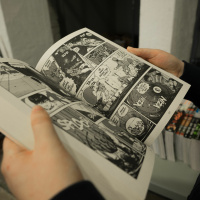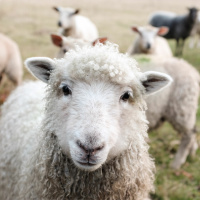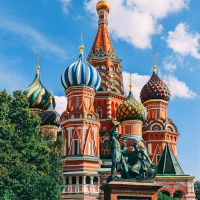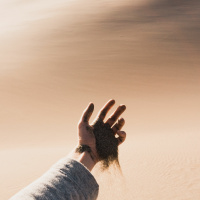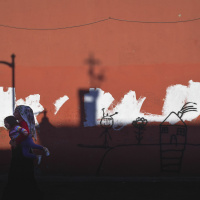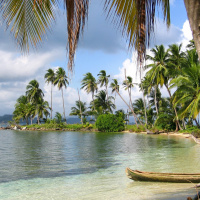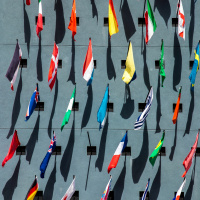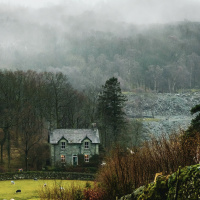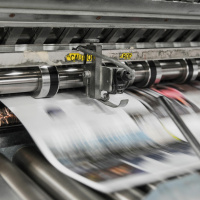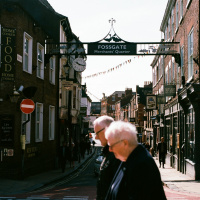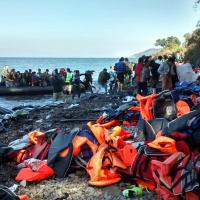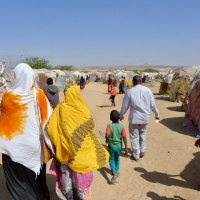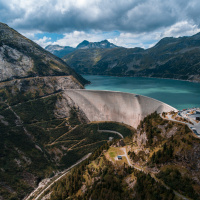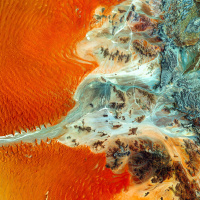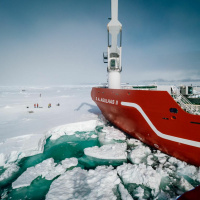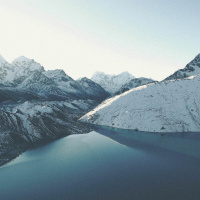Rgs-ibg Ask The Experts
- Autor: Vários
- Narrador: Vários
- Editora: Podcast
- Duração: 51:15:27
- Mais informações
Informações:
Sinopse
Podcast by Royal Geographical Society (with IBG)
Episódios
-
How do graphic novels help understanding of natural disasters? Dr Gemma Sou
30/08/2019 Duração: 20minOn September 2017, the biggest storm in Caribbean history, Hurricane Maria struck Puerto Rico causing 30 billion US dollars in damage. But what happened after the storm passed? In this podcast we’re meeting Dr Gemma Sou, to find out about her research with 16 low-economy Puerto Richan families to discover how they recovered from the Hurricane and its long-term and hidden impacts. We’ll discuss how Dr Sou turned this research into a 20 page graphic novella to tell the story of a fictional family based upon these experiences.
-
How is globalisation changing the countryside? Professor Michael Wood
23/08/2019 Duração: 21minGlobalisation is changing our world as we know it, it’s transforming economies, societies, and the environment. But whilst geographers have long studied its effects in global cities - there’s been little research on the concept of ‘a global countryside’ and the impacts of globalisation on rural spaces. In this podcast we meet Professor Michael Wood from Aberystwyth University. We discuss how migration, trade, and tourism has shaped the rural landscape in England and Wales.
-
How is climate and its science governed in Russia? Dr Jon Oldfield
19/08/2019 Duração: 17minIn this podcast we meet with Dr Jon Oldfield, from the University of Birmingham to discuss geopolitics, the role of Russia as an influential climate actor, and the potential consequences of climate change on this vast and environmentally dynamic country. We’ll be finding out more about his latest research project into Soviet climate science and its intellectual legacies
-
Why is sand a powerful natural resource? Dr Laura Schoenberger
16/08/2019 Duração: 11minIn this podcast, we meet with Laura Schoenberger, we explore how, in countries such as Cambodia, sand mining is contributing to the erosion of estuaries, collapse of riverbanks. Sand is not a renewable resource within human timescales, so what does this mean for our environment and the countries that will suffer the most insecurity as a result of its loss.
-
How is place-attachment and belonging managed in refugee re-settlement? Sara Kindon and Amber Kale
12/08/2019 Duração: 23minWhen refugees re-settle into new communities it can impact sense of belonging, place and home. So how can this be negotiated and managed? In this podcast we’re joined by Sara Kindon and Amber Kale from Victoria University, Wellington, New Zealand. We’ll be discussing their research into migration, homliness, belonging and the methods that geographers use to explore these issues through qualitative data.
-
How is creativity produced in the Caribbean? Dr Pat Noxolo
09/08/2019 Duração: 31minCaribbean creativity has shaped literary, music and dance cultures globally. Alongside this geographers are increasingly looking at what performance can tell us about place, identity and politics. In this podcast we're interviewing Dr Pat Noxolo from the University of Birmingham, to discuss the ways in which Caribbean people deploy creative energy to live with the everyday effects of insecurity, poverty, inequality and violence in this culturally and environmentally unique region.
-
How does international aid work? Dr Emma Mawdsley
05/08/2019 Duração: 25minInternational aid is more than a flow of money. Whilst it’s an economic exchange, it’s also one that shaped by geopolitics and geographical imaginations about place - especially so, in terms of traditional donors and recipients of aid. In this podcast we're joined by Dr Emma Mawdsley to discuss global development, and how international aid really works.
-
What is rural gentrification? Professor Martin Philips
02/08/2019 Duração: 21minTraditionally, gentrification has been considered a highly urban process, taking place in cities and towns. But gentrification - and its implications for changing landscapes, rising rents, and displacement - take place in rural spaces too. In this podcast, we meet Professor Martin Philips from the University of Leicester to discuss how TV and Media have constructed representations of rural life in Britain, and how often this may belie the realities and challenges of the countryside.
-
What do cartoons tell us about global politics? Dr Daniel Hammett
29/07/2019 Duração: 22minWith changing borders, Brexit and Trump it’s an interesting time for global geopolitics. Historically, and even more so in today’s current climate political cartoons are released via newspaper and social media as a commentary on global power relations and nation-hood. In today’s podcast we’re joined by Dr Daniel Hammett from the Department of Geography at the University of Sheffield to discuss what we can learn from such cartoons, the role of humour in political geography and his research into citizenship and geopolitics in Southern Africa.
-
How do we talk about environmental risk? Professor Esther Eidinow
25/07/2019 Duração: 19minWhilst research and science often provide an explanation on how the world works, the role of concepts such as fate, luck, fortune affect our understandings of risk. In this podcast we speak to Professor Esther Eidinow about the role future scenarios play in our perception of risk.
-
How is high street regeneration managed? Dr Steve Millington
23/07/2019 Duração: 31minDeclining retail poses fundamental questions to the future of places where we live, work and socialise. In this podcast we're joined by Dr Steve Millington from Manchester Metropolitan University to discuss place-management. How have these places been managed so far - and how can geographers envisage brighter futures for their creative, social, cultural and economic development?
-
Why did unprecedented migration occur across the Mediterranean in 2015? Professor Heaven Crawley
17/06/2019 Duração: 28minAt the end of 2015, over one million people had taken perilous sea journeys across the Mediterranean in search of safety. As part of #RefugeeWeek2019, we speak to Professor Heaven Crawley to discuss her research with over 500 migrants and refugees in 2015, to share their experiences, and to improve support for those in search of security, and those who risked their lives to find it.
-
What is the relationship between comic books and geopolitics? Professor Jason Dittmer
24/04/2019 Duração: 23minIn this podcast, we hear from Professor Jason Dittmer at University College London to discuss the role of comic books and their characters is constructing national identity and superpower in the US, Canada and Britain. Find out more about the role of popular culture in geopolitics.
-
How is internal migration changing cities? Professor Michael Collyer
09/04/2019 Duração: 27minBy 2050, it is estimated that the number of people living in urban areas in Africa and Asia will have doubled to 5.2 billion. Most of this urban growth will be from internal migrants. In this podcast we hear from Professor Michael Collyer, Principal Investigator on the Society’s research programme, Migrants on the margins. We discuss why do people move, and how is this movement changing cities.
-
What are the big challenges for global water security? Professor David Hannah
20/03/2019 Duração: 11minIn this podcast we interview UNESCO Chair of Water Science Professor David Hannah at the University of Birmingham. We explore the hydrological cycle and big challenges related to the sustainable management of challenges associated with water insecurity.
-
Can digital technology make cities safe and inclusive? Dr Ayona Datta
08/03/2019 Duração: 22minBig data and digital technology are changing cities around the world - but are these new urban futures inclusive, or exclusionary? In this podcast we hear Dr Ayona Datta, Reader in Urban Futures at Kings College London discuss her research on India's smart cities.
-
How do we map global change? Senior Earth Observation Specialist Terri Freemantle
07/03/2019 Duração: 11minTerri Freemantle, Senior Earth Observation Specialist at Satellite Applications Catapult discusses how earth observation data helps us to understand locational change, from tackling rapid urbanisation, food security, to deforestation.
-
Why is the Weddell Sea important? Professor Julian Dowdeswell
05/02/2019 Duração: 12minIn January and February 2019, a major international scientific expedition explores one of the coldest, harshest and most remote locations in the world, the Weddell Sea. In November 2018, we spoke to one of the leading experts on the expedition, Professor Julian Dowdeswell, Director of the Scott Polar Research Institute and Professor of Physical Geography at the University of Cambridge. We discuss glaciers, ice-caps and this extraordinary journey that draws to a close soon.
-
How do glacial surfaces evolve over time? Dr Ann Rowan
12/11/2018 Duração: 11minDr Ann Rowan, Research Fellow, Department of Geography, University of Sheffield, joins us to discuss how glacier surfaces evolve over time, and specifically how Himalayan glaciers are responding to climate change.
-
What makes the Arctic unique? Dr Ingrid A. Medby
11/09/2018 Duração: 18minThe Arctic is a unique landscape experiencing physical, social, and political change. How is this governed, and how does this impact place identity? We discuss with Dr Ingrid A. Medby, Lecturer in Political Geography at Oxford Brookes University.

